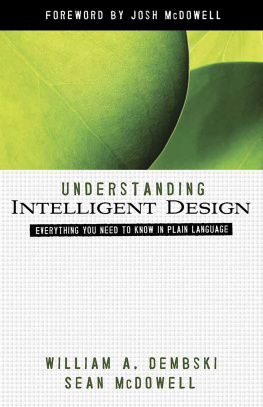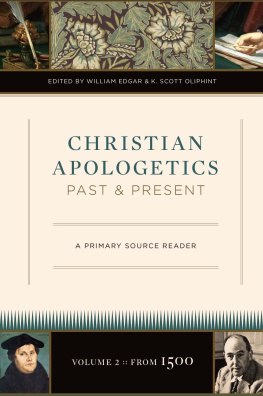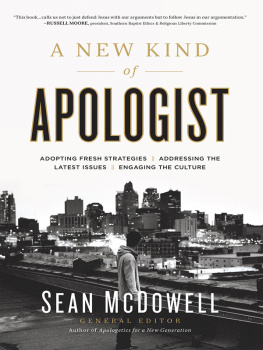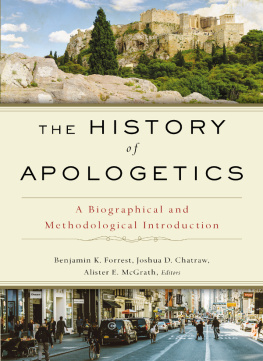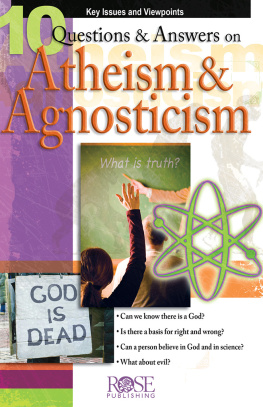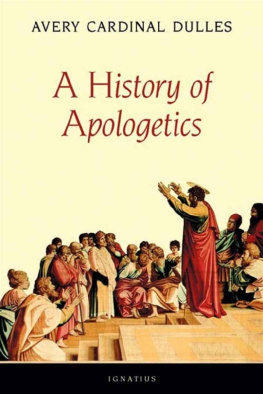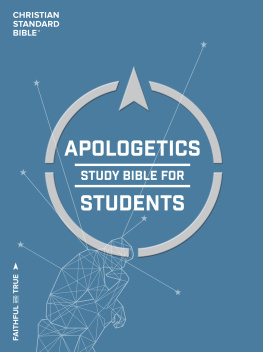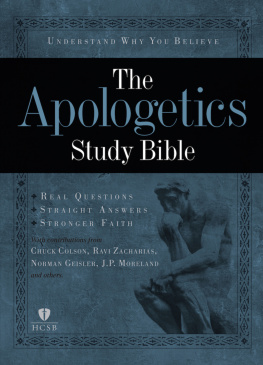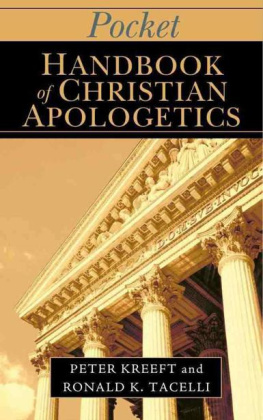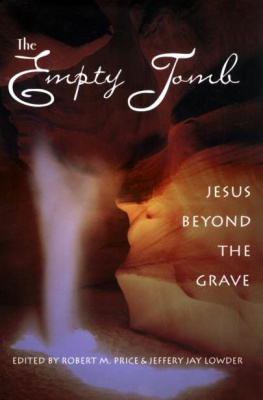evidence for
GOD
evidence for
GOD
Arguments for Faith from the Bible,
History, Philosophy, and Science
Edited by
William A. Dembski
Michael R. Licona

2010 by the North American Mission Board
Published by Baker Books
a division of Baker Publishing Group
P.O. Box 6287, Grand Rapids, MI 49516-6287
www.bakerbooks.com
Printed in the United States of America
All rights reserved. No part of this publication may be reproduced, stored in a retrieval system, or transmitted in any form or by any meansfor example, electronic, photocopy, recordingwithout the prior written permission of the publisher. The only exception is brief quotations in printed reviews.
Library of Congress Cataloging-in-Publication Data
Evidence for God : 50 arguments for faith from the bible, history, philosophy, and science / edited by William A. Dembski, Michael R. Licona.
p. cm.
Includes bibliographical references.
ISBN 978-0-8010-7260-4 (pbk.)
1. God (Christianity). 2. GodProof. 3. Apologetics. I. Dembski, William A., 1960 II. Licona, Mike, 1961
BT103.E95 2010
239dc22 2010005990
Scripture marked HCSB is taken from the Holman Christian Standard Bible, copyright 1999, 2000, 2002, 2003 by Holman Bible Publishers. Used by permission.
Scripture marked NASB is taken from the New American Standard Bible, Copyright 1960, 1962, 1963, 1968, 1971, 1972, 1973, 1975, 1977, 1995 by The Lockman Foundation. Used by permission.
Scripture marked NIV is taken from the HOLY BIBLE, NEW INTERNATIONAL VERSION. NIV. Copyright 1973, 1978, 1984 by International Bible Society. Used by permission of Zondervan. All rights reserved.
Scripture marked NKJV is taken from the New King James Version. Copyright 1982 by Thomas Nelson, Inc. Used by permission. All rights reserved.
Scripture marked NLT is taken from the Holy Bible, New Living Translation, copyright 1996, 2004. Used by permission of Tyndale House Publishers, Inc., Wheaton, Illinois 60189. All rights reserved.
10 11 12 13 14 15 16 7 6 5 4 3 2 1
To all teachers of Christian apologetics
May their numbers multiply
Contents
David Beck
Paul Copan
Gary R. Habermas
L. Russ Bush III
Bruce A. Little
David Wood
David Wood
Robert Kaita
Jay W. Richards and Guillermo Gonzalez
Joe W. Francis
Walter Bradley
Michael Newton Keas
Phillip E. Johnson
Edward Sisson
Nancy Pearcey
Ray Bohlin
Robert J. Marks II
Richard Weikart
Guillermo Gonzalez and Jay W. Richards
William A. Dembski
Richard Spencer
Bill Wilberforce
Jonathan Witt
Angus Menuge
Bruce L. Gordon
William A. Dembski
Paul L. Maier
Craig L. Blomberg
Darrell Bock
Ben Witherington III
Ben Witherington III
Craig A. Evans
Michael R. Licona
Gary R. Habermas
Gary R. Habermas
Michael R. Licona
Bill Gordon
Tal Davis
Michael R. Licona
Michael R. Licona
Ben Witherington III
Andreas J. Kstenberger
Daniel B. Wallace
Denny Burk
John McRay
Craig L. Blomberg
Craig L. Blomberg
Craig L. Blomberg
Charles L. Quarles
Craig A. Evans
In the spring semester of 2003, Derrick McCarson began his college experience at the University of North Carolina at Chapel Hill. A committed Christian, Derrick enrolled in a course titled Introduction to the New Testament. On the first day of class, he was surprised to see that nearly five hundred students had enrolled in the same class. The professor, Bart Ehrman, walked in and started abruptly, Id like to see a show of hands. How many Bible-believing Christians do we have in the auditorium today? Come on. Dont be bashful. After about a half dozen students raised their hands, Ehrman said, Thats good. It looks like we have a few Christians here today. Welcome to Intro to the New Testament. My goal this semester will be to change everything you Christians think you know about the Bible and about Jesus.
Similar actions have occurred and continue to occur in a number of universities across North America. Students have likewise told us of atheist professors who have informed their Christian students on the first day of class that their goal was for them to give up their faith by the end of the semester.
The ideological war glimpsed here goes beyond the usual political controversies in the U.S. between liberals and conservatives. It even goes beyond the battle between religion and secularismit is focused against evangelical Christians. A 2007 report by Tobin and Weinberg published by the Institute for Jewish and Community Research reveals that American faculty overwhelmingly assert[ed] their desire to see Christian influence lessened while being far less critical and even supportive of increasing Muslim religious influence in politics. They added that it is interesting and even perplexing to see a shared inclination among faculty atheists, those faculty with no religion, and those faculty for whom religion holds no importance: They defend the right of Muslims to express their religious beliefs in American politics, while holding openly hostile views of fundamentalist Christians.1 And for such faculty, any evangelical Christian is an unthinking bigot and therefore a fundamentalist.
The researchers added that the most troubling finding in the survey was that American faculty feel less positively about Evangelicals than about any other religious group. The survey responses showed that evangelical faculty were perceived as few to nonexistent, that Muslims were much more likely to find support when advocating their religious beliefs on the American political scene, and that tolerance, though regarded as a virtue when applied to other religious groups, was regarded as inappropriate when applied to evangelical Christians. According to the researchers, these findings raise serious concerns about how Evangelical Christian faculty and students are treated or feel they are treated on campus.2
This bias against evangelical Christian students might give some a reason to wring their hands. We see it as an opportunity. Indeed, on many college campuses, this can be turned to evangelicals advantage. After all, Christians are called to defend their faith (1 Pet. 3:15). And in defending the faith, we have the opportunity to share it. Unfortunately, many of our churches have failed to prepare their young people for the task. As a result, many Christians are unaware that philosophy, science, and history all provide abundant evidence that the Christian God exists and that he has powerfully revealed himself to humanity in the person of Jesus of Nazareth.
This book contains fifty articles written by leading scholars and scientists. They give scientific arguments that reveal how the universe and life itself are the products of a Designer of immense intelligence and power. They give philosophical arguments that reveal the goodness, transcendence, and eternity of the Designer. They give historical arguments that reveal how the Designer visited earth in Jesus of Nazareth two thousand years ago. (Its no accident that before embarking on his ministry, Jesus made his living as a designer, specifically, as a carpenter.)
Next page

